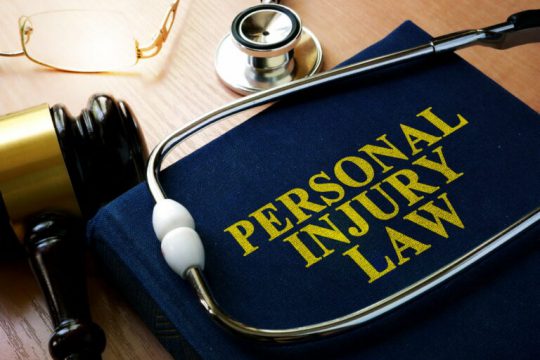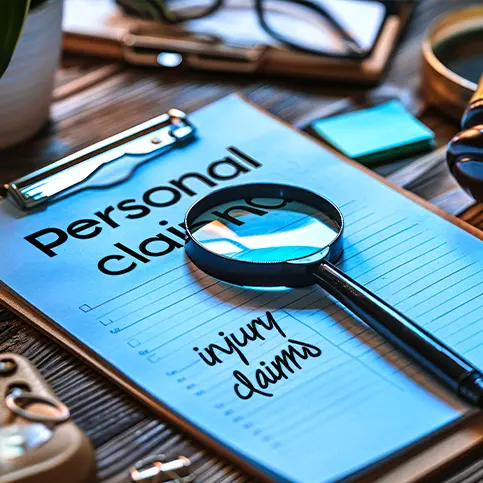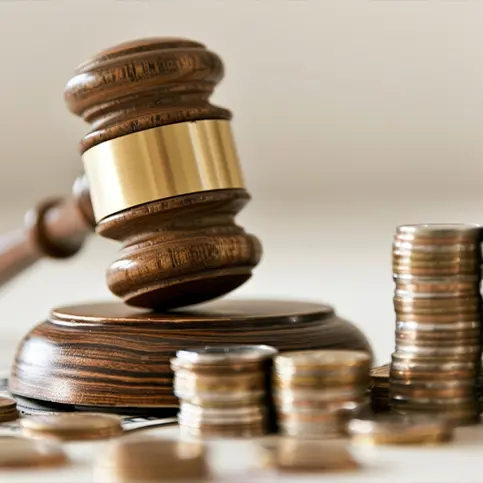
Accidents can happen any time. Experiencing a serious injury is something we hope never happens to us or our loved ones.
It is a traumatic event, and you are certainly not prepared for the additional stress of having to deal with a mountain of details and pressure from an insurance company to settle quickly. How do you know to what compensation you are entitled?
Hiring an attorney to represent you might be a smart choice to help you get what you are rightly due.
Personal injury lawyers advocate for individuals injured at the hands of someone else. They help people who have been placed in harm’s way recover what they are due from the parties involved and/or the insurance company. Helping injured clients in their time of greatest need is a primary motivator for lawyers who choose this law specialty.
Common Practice Areas in Personal Injury Law:
- Motor Vehicle
- Premises Liability
- Product Liability
- Medical Malpractice
A personal injury attorney knows the law in their respective state, along with all the details of opening, managing, and obtaining a personal injury claim. They help people who have been physically or psychologically injured as the result of the negligence or intentional act of another party. Personal injury lawyers are civil lawyers.
When you retain a personal injury attorney, you can rest easy. Someone has your back and acts as your advocate. Plus, most PI lawyers handle cases on a contingency basis, meaning there are no out-of-pocket expenses to you up front and no bills due until a settlement is reached or there is a jury verdict.
They will first listen carefully as you present the facts and details of the incident and handle them in a methodical, professional, and legal manner. Then they move on to interview others who are directly involved in the incident. Since they are receiving no compensation up front, they will take your case only after careful consideration and feel that you, the plaintiff, has a case.
The next step is to develop and investigate the facts of your case, which may or may not involve independent private investigators, depending upon the complexity of the case. Your lawyer’s firm will, with your help, find and interview witnesses, obtain police reports, and collect medical records and other information relevant to the case – which may or may not require filing a lawsuite or proceeding to a Jury trail.
Information your Personal Injury Attorney will gather:
- Photo or video surveillance related to the incident
- Eyewitness Accounts
- Accident or police reports
- Vehicle “black box” data (if involving motor vehicles)
- Mobile device data
Evidence gathered for Premises Liability might include information on construction, maintenance and inspection records. In the case of medical malpractice, any information, depending upon the nature of the claim, might include safety records for a medical facility or medical equipment reviews.
Your lawyer will also function as a liaison to the insurance companies, so you don’t have to deal with them. Insurance companies predictably seek to reimburse the minimum remuneration allowed. He or she will try to maintain a steady flow of needed information from the insurance company.
Your attorney will thoroughly read and review your insurance policy and be vigilant to make sure the insurance company is paying out the maximum due to you. Payout may eventually include reimbursement for medical expenses, loss of income, loss of earning capacity, emotional distress, loss of companionship, loss of enjoyment of life, mental anguish and pain and suffering.
Your lawyers, depending upon the complexity of the case, will review applicable statutes, case law, common law, and relevant legal precedents. They use this information to establish a valid rationale for pursuing a claim.
They are also given the tedious task of keeping and tallying your paperwork documenting all your medical treatments and costs associated with them, as well as obtaining requested medical reports.
They will reach out to your employer and physicians to gather documentation regarding your ability to work, how long you will be incapacitated, or if you need to find another line of work or can even work at all.
Then, with a comprehensive understanding of your case, they will reach out to the insurance company to offer a settlement amount. If the other parties disagree in their assessment of the incident, for example who was at fault, the case may need to move to litigation and/or trial.
The vast majority (95%) of all claims are settled prior to trial, but sometimes there is such a wide disparity between the parties that going to court is the only way to come to a resolution. In this instance, your lawyers will represent you and guide you through the process, helping you fill out and provide necessary paperwork.
How to Find a Good Personal Injury Law Firm
Finding a reputable law firm with solid experience in personal injury law pertaining to your case is your first priority. It is wise to research the lawyer and their firm by going online and asking around. How long have they been in business? Your attorney should be someone with whom you are comfortable. Then, you can relax and let them move your claim forward. It should be a firm that offers personalized attention, and not one that just “pushes you through the system.”
Prince, Schmidt, Baca & Woods is a personal injury law firm in Santa Fe, NM, and offers not only decades of expertise in many practice areas, as well as civil litigation, but also treats each client individually and with the upmost respect and care.
PSBW is a Northern New Mexico institution founded in 1954. Call today for an appointment at 505-982-5380.


